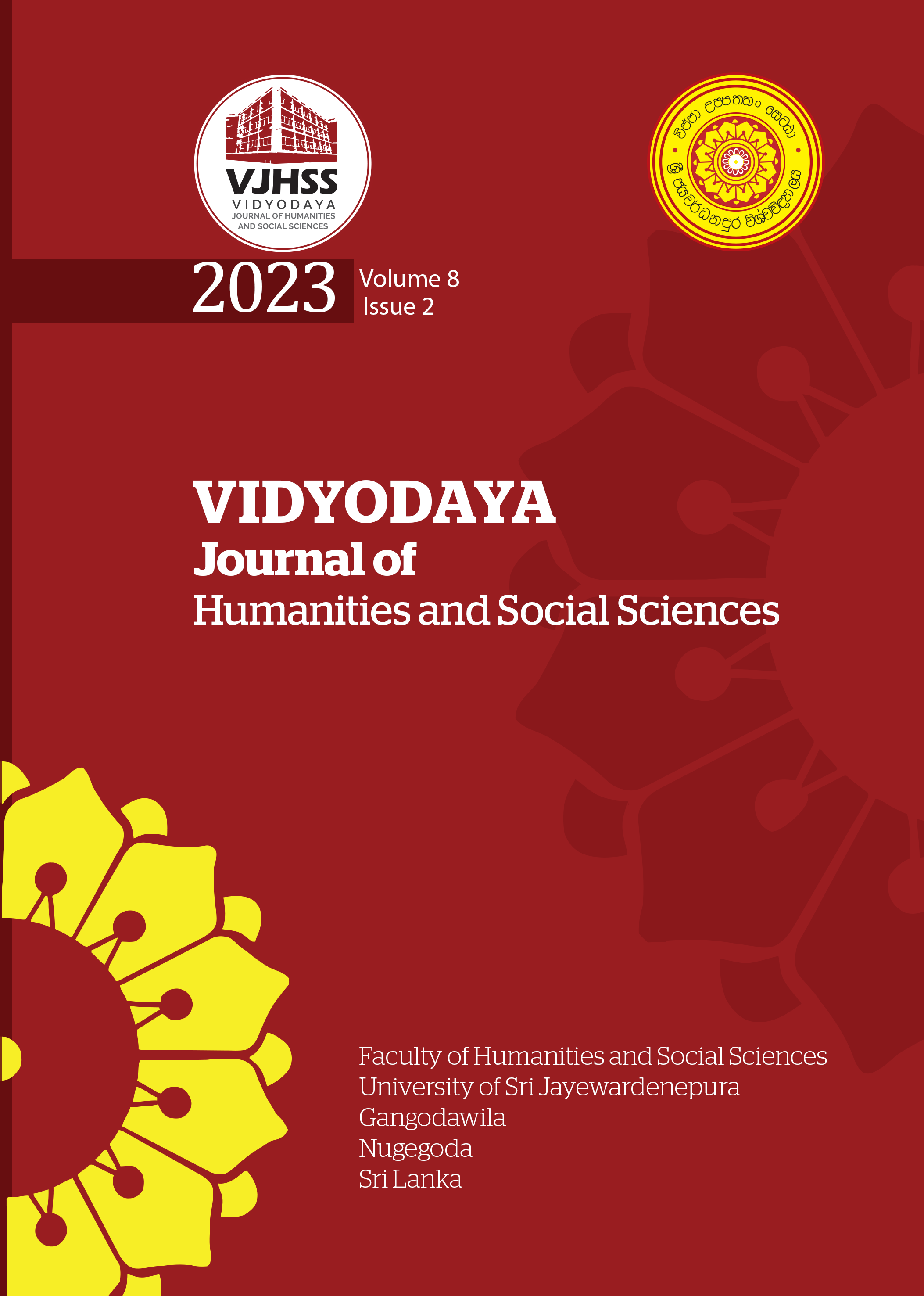The Environmental Issues and Appropriacy of Adapted Management Strategies
Abstract
Environmental issues are a ubiquitous but vague concept. Understanding these problems' nature and how anthropogenic actions contribute to them is essential. At present, it is possible to identify many environmental issues on different scales in the world and Sri Lanka. Therefore, this research mainly aimed to identify the main environmental issues and the appropriacy of adapted management strategies in Egoda Guruwala GN Division in Sri Lanka. Interviews and field observations were used as the main data collection method. The ranking method was used to identify the most prominent issues, and the results were interpreted using Problem Tree analysis. Further, it investigates the strengths and weaknesses of the management strategies in a qualitative methodological approach. The results found that there are five main environmental problems, [1] soil erosion and land degradation, [2] deforestation, [3] environmental pollution, [4] invasive species spreading, and [5] other problems. The study found different management strategies such as planting trees, trenching in sloped areas, raising awareness, using the popper waste disposal method, properly implementing the rules, and composting the carbonic waste. However, the study found another environmental issue due to unsustainable management strategies. As a rural area, the community already has the potential to use sustainable environment management strategies to reduce the environmental issues that may arise in the future. Even so, lack of accountability and ignorance may cause on developing the current situation. Therefore, this study enables us to identify the possible management strategies that may take at a domestic and community level to control and minimize the future environmental issues in the study area.



